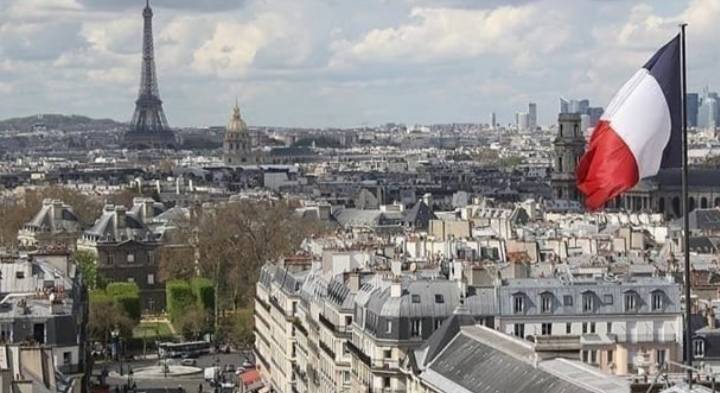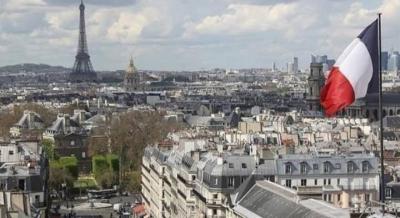There is no debate about the importance of the five-party meeting held in the French capital at the beginning of this month, specifically on February 6, as it stands out in the approach of the countries concerned with the Lebanese file ahead of the presidential election. This meeting aimed to dispel the speculations about the indifference of these capitals, particularly the United States and Saudi Arabia, regarding the overall Lebanese situation. However, the meeting did not prove that there is a serious international, specifically American, will to decisively determine the outcome of the presidential elections in the near future, particularly as international consensus is a fundamental component no less significant than internal consensus in the "equation" of producing a new president, which cannot be overlooked despite Lebanese forces raising the banner of their "sovereign commitment."
Theoretically, the tour led by the ambassadors of the five-party group meeting with Lebanese officials, irrespective of the nature of discussions that their representatives had in Paris, should serve as a clear indicator of the start of international pressure to complete the presidential election, given that internal avenues have been closed and all attempts by the parliament, which appeared more folkloric, to elect a new president have resulted in "zero outcome." Nonetheless, some Lebanese parties assert that the Paris meeting ended with "no result" due to the divergences that governed the stances of the participants, failing to put a unified roadmap or a single vision on how to tackle the Lebanese file. Conversely, a source following the discussions insists that the results of international pressure towards settling the Lebanese presidency will emerge in the coming weeks, affirming that elections will yield a new president before the end of the term of the Governor of the Central Bank, Riad Salameh, specifically by early summer, especially as all indications suggest that Salameh's position has completely deteriorated, leading the search to shift towards identifying his successor. Meanwhile, Western countries, specifically Washington and Paris, prefer to finalize the presidency before reaching the vacancy in the governorship of the central bank.
In the estimation of the observing source, the entire region is witnessing a trend toward rapprochement that may create a regional intersection regarding the Lebanese file, in light of the positive signals evidenced in the Yemeni and Iraqi files, indicating a potential Saudi-Iranian rapprochement that could expand to encompass the Lebanese file, especially if it does not encounter any substantial obstacles.
In detailing the discussions that took place in the French capital among U.S. Assistant Secretary of State for Near Eastern Affairs Barbara Leaf, Saudi Crown Prince advisor Nizar Al-Aloula, Qatari Assistant Foreign Minister Mohammed Al-Khalifi, French presidential advisor for the Middle East Patrick Durel, French Foreign Ministry Middle East Director Anne Ghegnen, and Egypt's ambassador to Paris, Alaa Youssef, the following observations can be noted:
- It appeared that the U.S. envoy was the most attentive, only commenting on two significant issues: firstly, the continuation of imposing sanctions on those obstructing reforms required by the International Monetary Fund or the presidential process, in response to remarks from the Qatari representative regarding the issue of sanctions and their effectiveness; second, the ongoing efforts to conclude the imminent electoral process.
- The Saudi position was decisive in rejecting any dealings with a president close to "Hezbollah," responding to proposals from the representatives of Paris and Cairo; however, some diplomats in Lebanon indicate that the Saudi position in the Paris meeting did not exceed the limits of reservation.
- Likewise, responses from Paris and Cairo were explicit in separating the course of the presidency from that of the Speakership, focusing pthe discussion on concluding the presidential issue exclusively and postponing discussion on the latter, knowing that the package agreement is primarily a Saudi demand.
Observers say that the accelerating collapse of the lira's value will inevitably incite street activity and could be an early indicator of the serious start of the presidential battle after weeks of "parliamentary play." This is evidenced by the remarks from Hezbollah Secretary-General Hassan Nasrallah, who spoke directly about the "politicization of chaos," stating: "If some are planning for chaos, if the Americans or their affiliates in Lebanon are planning for chaos and the collapse of the country, I say they will lose everything in Lebanon." He added, "Those who bet that pain and suffering will make our environment abandon its principles and achievements are mistaken; anyone aiming to push Lebanon into chaos and collapse should expect everything beyond their imagination."
In any case, insiders see that the ground warming may be the first genuine boxing match to settle the presidential file, while the latest counting indicates that the March 8 forces have not yet managed to reach the threshold of sixty votes to allocate them in favor of Sleiman Frangieh, contrary to earlier leaks mentioning securing 65 votes.




